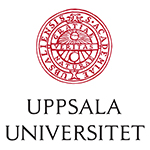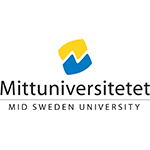
SPEAKERS
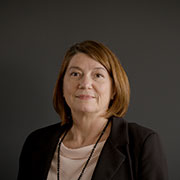
Isella Vicini graduated in Information Science, she’s the Director of the European Funding Development of Warrant Hub S.p.A and the CEO and founder of beWarrant, a Belgian consultancy company that provides support on European Funding opportunities. She has a wide experience in the EC Research and Innovation programmes, like Horizon 2020 and LIFE Programme. Since the First Framework Program (1985), she works in the European Project Design field, taking care of the complete cycle of a project: from the analysis of the sectorial policies to the conclusion of the research and innovation project. She’s the Project Coordinator of the EU funded project Repair3D; she’s the founder and Dissemination Manager of the Carbon Fibres & advanced high performance composites cluster and ECHOES, the EC Cluster on Cultural Heritage.
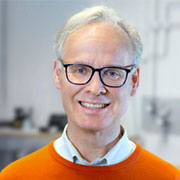
Prof. Klas Hjort is experienced in advanced microengineering. Recently, his focus has been heterogeneous microsystems on stainless steel, flexible foils and elastic substrates; for biomedicine and wireless sensor and actuator nodes. He is co-ordinator of the H2020 projects SINTEC on soft and stretchable printed circuit boards for wireless smart patches and SOMIRO on autonomous swimming soft micro robots that only require energy from the sun.
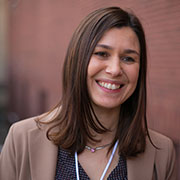
Sara Attanà is Dissemination Specialist at the Business Unit European Funding Development of Warrant Hub S.p.A. After a BSc in Communication Science and a Master in Business Management, she has been Marketing and Communications Assistant for Cesari srl and Web Designer, Social Media Manager and SEO Specialist for the IT company ITquadro srl. Since 2017, she is Dissemination and Communication Consultant, Web Designer and Graphic Designer in Warrant Hub. She’s currently involved in the dissemination and communication of more than 50 H2020 and LIFE projects; her activity includes the development of project websites, organization of events and trainings, social media management, graphic design, and EU project reporting. She’s the winner of the 2020 .eu web awards for SINTEC project website.
Contacts:
E-mail: [email protected]
Cell: +39 348 2625139
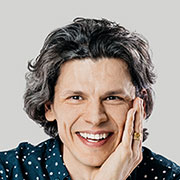
Gustaf Mårtensson has a M.Sc. in Engineering Physics from the Royal Institute of Technology (KTH) in Stockholm, Sweden. He continued his studies in the realm of fluid mechanics and received his Ph.D. in 2006 from KTH. Gustaf divides his time between rolls as an Expert of Complex Fluids at Mycronic AB and an affiliated researcher at the School of Chemistry, Biotechnology and Health at the Royal Institute of Technology in Sweden.
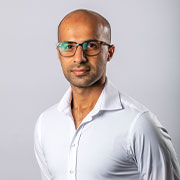
Hashim Quraishi has a passion for designing solutions to improve the user’s quality of life. He has previously combined his background in mechanical and biomedical engineer to design various mechanisms and medical products such as exoskeletons and prosthetics. Currently he is active as a firmware engineer with a primary focus on the Internet of Things.
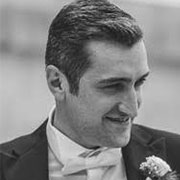
Alessandro Gumiero was born in Moncalieri, Italy in 1985 and received the Laurea degree in Electronic Engineering from Politecnico of Turin, Italy in 2011. During the last year of his studies he joined the SRA laboratory of STMicroelectronics, where he developed his skills in electronic design and acquired new expertise in the analysis of biological signals. His research focused on the detection of the PhotoPlethysmoGraphy (PPG) signal on the wrist in motion condition, both with traditional techniques and, recently, with more innovative sensors, like single photon avalanche diodes (SPADs) and SPAD cameras. Currently, he is, within the SRA Remote Monitoring Team, the responsible of the electronic and mechanical part and co-responsible of the algorithm part for the development of innovative patches for ECG and BIO signals monitoring. He also explored electroencephalography (EEG) acquisition and processing through wireless, high density, multichannel devices. He collaborates, in his research activities, with academic and industrial partners, also in the context of national and international funded projects. He is inventor of 1 granted patent and (co-)inventor of other 2 patented application.
His research is always oriented to promote and simplify the usage of medical instrumentation to enable a reliable BIO signals remote monitoring and improve the quality of life of the people reducing at the same time the cost of the public facilities.
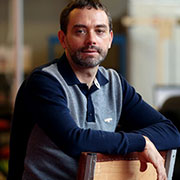
Dr. Matej Supej is a professor of Sport Science-Kinesiology, head of the Laboratory of Biomechanics and head of the research programme at the Faculty of Sport, University of Ljubljana, Slovenia. He is also a guest professor at the Department of Health Sciences at Mid-Sweden University. He has an interdisciplinary background with a B.Sc. in Physics, an M.Sc. in Mechanical Engineering, and a Ph.D. in Sport Sciences. He is a former elite alpine skier, a member of the National Alpine Ski Team and Demo Team, and currently a member of the Technical Advisory Board of the Slovenian Ski Association. His research, which has been recognized with two national awards for scientific excellence, an international innovation award, ~100 scientific papers, several invited lectures and presentations, focuses mainly on the biomechanics of human movement, advances in wearable technologies and other measurement technologies, especially for optimizing sports performance, sports equipment and reducing the risk of injury.
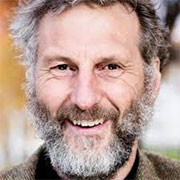
Hans-Christer Holmberg is Professor at Luleå University of Technology. He is also affiliated with Karolinska Institute in Stockholm, Sweden, and the University of British Columbia in Vancouver, Canada, as a senior researcher.
He founded the Swedish Winter Sports Research Centre in 2006 and acted thereafter as its Director until 2015. Holmberg’s research focuses primarily on cross-country and alpine skiing, using integrated physiological and biomechanical characterization, both in the laboratory and field, to elucidate mechanisms and improve performance. His multiple disciplines of interest within physiology include muscle function, circulation, respiration, and metabolism, while his biomechanical approaches include kinetics, kinematics and electromyography, with special emphasis on novel technology.
He has also carried out research on other sporting disciplines (e.g., cycling, running, swimming, orienteering, soccer) and his present total of more than 220 publications in peer-reviewed scientific journals, in addition to several book chapters, includes a growing number on physical activity and health, as well as on the utilization of wearable sensor technology.
Dr. Holmberg is also Director for Research & Development at the Swedish Olympic Committee (2005-present).
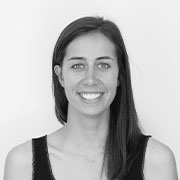
Nina Verdel is employed at the Mid Sweden University and the Faculty of Sports, University of Ljubljana, Slovenia. Within the SINTEC (Horizon) project, she is working at Mid Sweden University on the development and validation of a new sensor – SINTEC smart patch (biomechanical and physiological parameters). At the Faculty of Sport she is doing research in the field of biomechanics.
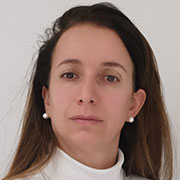
Barbara Pellegrini is currently associate Professor of Sport Science at the University of Verona, and teaching by the Master’s degree in Sports Science and Physical Performance, University of Verona and Trento, Italy. She earned her Master Degree In Physics at University of Trento in 1999, and her PhD in Physical Exercise and Human Movement Science from the University of Verona in 2012. She is in the Department of Neuroscience, Biomedicine and Movement Science, and her research activity is mainly carried out in the laboratories of CeRiSM, Research Center for Mountain Sports and Health, of the University of Verona. Her main research interests are in the field of biomechanics and physiology of sport, human exercise and locomotion in the field of endurance sport, with a special focus on cross country skiing. She has conducted several projects by collaborating also with international groups with the aim to deepen the knowledge of the biomechanics and energy of cross country skiing. Her research interests include Nordic Walking. From 2005 to now she is involved in the evaluation test of the Italian Cross country ski teams. From 2010 to now, she is involved in collaborations with sports companies, in projects aimed at testing sports garments and equipment for sports.
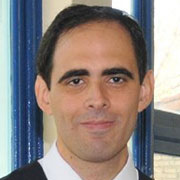
Dr. Mauricio Pérez was born in Buenos Aires, Argentina, on 25 July 1980. He received the engineering degree in Electronics from the National Technological University (UTN) in Argentina in 2007. He obtained the PhD in Electrical Engineering at University of Bologna (UNIBO) in Italy in 2012. He had experiences in the industry as a researcher in Italy from 2012 to 2014 and from 2014 he is a collaborator with National Technological University (UTN) of Argentina in teaching and research. Currently, he is a researcher at the Microwaves in Medical Engineering Group at Engineering Sciences Department of Uppsala University (UU) in Sweden. His research interests are microwave passive technologies and advanced applied mathematics for biomedical applications.
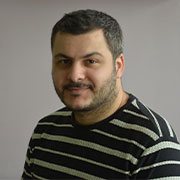
Dr. Antonis Billis holds the position of the PostDoc Research Fellow at the Lab of Medical Physics and Digital Innovation. He received his diploma in Electrical and Computer Engineering in 2007 and MSc in Medical Informatics in 2011, both from Aristotle University of Thessaloniki, Greece. Finally, he obtained in 2020 his PhD entitled “Digital biomarkers as ecologically valid measures for the remote and longitudinal assessment of older adults health”. His main research interests lie in the areas of sensors, remote health monitoring, medical decision support systems, smart hospital applications, mHealth, AAL technologies and Living Labs. He has authored/co-authored numerous papers in conferences and peer-reviewed journals (for a complete list of references please see https://scholar.google.com/citations?user=z-dP1t4AAAAJ&hl=en&oi=ao) and has also participated in several European and national research projects related to digital health. He is currently coordinating scientifically the LifeChamps (A Collective Intelligent Platform to Support Cancer Champions) and IntelTriage (Intelligent triage system for hospital emergency departments and clinics) projects. Finally, he has been a member of the technical chamber of Greece since November of 2007.
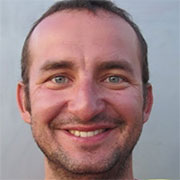
MD Ing. Guido Pagana received the degree in Engineering from Politecnico di Torino and Paris Supelec in 2000 and in MD from University of Torino in 2006, Ph.D. in Electronics Engineering in 2009 on microwave imaging for breast cancer detection. He is both engineer and medical doctor collaborating with hospitals in Torino area. He joined the Department of Control and Computer Engineering as Research Engineer working on algorithms for biomedical data analysis. His research field covers elderly medicine, telemedicine, telemonitoring, analysis of cardiological signal and microwave imaging. Since 2003, he has worked as a researcher at Links Foundation in Torino.
Pouyan Mehryar is currently a Postdoctoral Researcher in Artificial Intelligence at the Healthcare Innovation Centre (HIC) of Teesside University based in The Welding Institute, Cambridge/UK. He obtained his Master of Engineering (MEng) with first-class honours (within-top 1%) in Mechanical and Medical Engineering from the University of Hull, UK. He received his PhD degree from the institute of Design, Robotics and Optimisation (iDRO), School of Mechanical Engineering at the University of Leeds, UK, in 2018. After obtaining his PhD, he became a Postdoctoral Research Fellow in iDRO working on the Development of Intelligent Control for a Wearable Soft Robotic System. Following that, he was appointed as a Postdoctoral Teaching Fellow responsible for teaching Biomechatronics and Medical Robotics to master students, which mainly involved the use of Artificial Intelligence (i.e., machine learnings techniques) in robotic applications. Pouyan Mehryar also worked on different Innovate UK projects, which involved Quick fitting of prosthetic sockets for above-knee amputees (QuickFit), the development of a prototype wheelchair system that uses internet of thing (IoT) biophysical sensors for AI healthcare monitoring to support the independence of elderly patients (iChair) and AI-based solution for the detection and characterisation of lesions in breast MRI (Intelliscan) as a postdoctoral research associate at the HIC, UK. His research interests lie in the areas of Biomechanics, Clinical Movement Analysis, Neuro-Engineering, Assistive and Rehabilitative Robotics, Artificial Intelligence, Multibody Dynamics and Biostatistics.
His previous research focused on the neuromuscular coordination strategy of lower limb amputees from a biomechanics and robotic control perspective. Subsequently, He has been involved in developing intelligent techniques and devices for a wide range of applications in Medicine, Assistive and rehabilitative technologies, Healthcare and Gaming. He has worked on several research projects with universities and institutes worldwide, all of which have yielded high-quality publications.
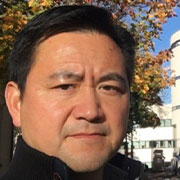
Dejiu Chen is a Docent and Associate Professor in Embedded Control Systems, with the Mechatronics and Embedded Control Systems Division and Digital Futures Faculty, of KTH Royal Institute of Technology, Sweden. His research interests are in the areas of embedded control systems (ECS), cyber-physical systems (CPS), and system-of-systems (SoS), with active research on: 1. Engineering methods and tools; 2. Architecture design and system integration; 3. Safety engineering for trustworthiness; and 4. Design of self-X properties for anomaly treatment and operation optimization. He has worked for Enea Data AB, Sweden, as a senior technical instructor during 2007~2009. Dejiu Chen is currently the PI for EU H2020 research project SocketSense on AI centric medical IoT, and the KTH PI for EUREKA EURIPIDES2 research project TRUST-E on the reliability of AI platforms. Dejiu Chen is a senior member of IEEE. For more information: https://www.kth.se/profile/chendj
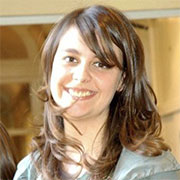
Marta Tessarolo received the PhD (2016) in Physics at University of Bologna. In her career, she worked in Area Science Park – Trieste developing advanced technologies for cancer diagnostics. Then she moved to the National Research Council (CNR) in Bologna focusing her research on flexible organic solar cells. Recently, she got a post-doc position in University of Bologna, Department of Physics and Astronomy and in the field of wearable textile biosensors based on polymer semiconductors. Nowadays, she wrote more than 40 papers on international scientific journals, attended to many international scientific conferences, she followed the technology transfer on several research projects on textile and flexible biosensors.
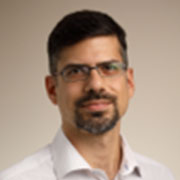
Alexis Melitsiotis is an R&D Project Manager and a Physicist graduate from the Physics Department of University of Crete. He completed his Postgraduate studies in “Physics and Technological applications” in 2015 at the National Technical University of Athens and his dissertation was related with the magnetotransport properties of multilayered thin films. In 2014 he joined the INN of NCSR Demokritos as a junior researcher and since then he has participated in 7 European, industrial oriented Research projects (FP7 & Horizon2020) for Research Centres and SMEs.
Dr. Josias Wacker holds an MSc in biomedical engineering (2007) from the Swiss Institute of Technology, Zurich (ETHZ) and a PhD in microtechnology (2012) from the Swiss Institute of Technology, Lausanne (EPFL). He joined CSEM in 2014 where he develops ergonomic, skin-friendly housings for sensors which measure body signals. He has managed R&D projects on a national and international level.

Rita Paradiso graduated in Physics from the University of Genoa and received her Ph.D. in Bioengineering in 1991. Molecular Electronics, Biosensors, Biomaterials for biomedical applications have been her main research topics. In particular she worked on functionalized surfaces and their characterization. She worked in London during the Ph.D. at the Physics Department of Queen Mary College. In 1993 she got a Post Doctor CE fellowship, at the Molecular Chemical Laboratory - CNE Saclay, France. In 1994 she was Post Doctor fellow at the Department of Material Engineering of the University of Trento. During 1998, she worked at the "IRST-Instituto Trentino di Cultura" on bio-activation of MEMS, FIBIA. From 1998-1999 she was Research Manager of Technobiochip s.r.l.- Marciana (LI)-Italy.
She has over 60 scientific publications and conference presentation since 1989, H index 27, i10 index 54 (google scholar). She joined Smartex in 2000 as R&D Manager, and from July 2011 is the CEO of the company. From September 2001 was the coordinator of WEALTHY (IST-2001- 37778), from January 2004, was working in MYHEART an Integrated Project (IST- 2002-507816) as coordinator of “Functional Bioclothes” consortium and is now working in Psyche (ICT-247777) as technical coordinator. She has a wide experience in national and international research projects, as e-textile expert. She is currently working in WELMO (H2020 825572), TACTILITY (H2020 856718) and SIXTHSENSE (H2020 883315). She won AVANTEX Innovation Prize 2005 Healthcare, she got the Paper Award for IEEE: Transactions on Information Technology in Biomedicine, 2010 EMBS an the Excellent Paper Award in year 2010 for Research Journal of Textile and Apparel.
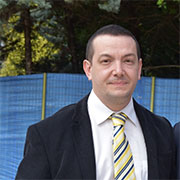
Nikolaos Beredimas has been involved in national and international eHealth research projects in the Aristotle University of Thessaloniki (Laboratory of Computing, Medical Informatics and Biomedical - Imaging Technologies) for the past ten years, in a multitude of roles including Requirements Elicitation & Analysis, Software Development, Systems Engineering, and System Security. His main areas of interest are in Health Data Storage and Representation, Semantic Data Representation, and in Clinical Decision Support Systems. He holds a Diploma in Electrical & Computer Engineering (University of Patras), a MSc in Medical Informatics (Aristotle University of Thessaloniki), and a Master of Public Administration (International Hellenic University).
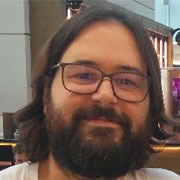
Bruno Rocha is a PhD student at the Department of Informatics Engineering of the University of Coimbra and member of the Adaptive Computation research group at the Centre for Informatics and Systems of the University of Coimbra (CISUC). His main research interests are in the areas of respiratory sound analysis and music computing. Since completing his master degree in Sound and Music Computing in 2011, Bruno Rocha has participated in several research projects. In 2012 he was a researcher at the University of Amsterdam, where he devised a structural segmentation algorithm and a timbre similarity measure for electronic dance music. In 2013, he moved to the University of Coimbra to study music emotion recognition, focusing on the development of novel features stemming from the analysis of melody and rhythm. From 2015 to 2017, Bruno Rocha was a member of the WELCOME project, developing signal processing algorithms for the detection and classification of cough. That project has been followed by WELMO, where he focuses on the analysis of adventitious respiratory sounds. The common research topic in all those projects has been the combination of audio signal processing and applied machine learning. In 2018, he was attributed a doctoral grant by the Portuguese Foundation for Science and Technology. Since 2012, Bruno Rocha has published in several conferences and journals of music research and health informatics.
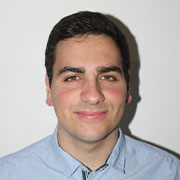
Diogo Pessoa is a doctoral student in Informatics Engineering at the Centre for Informatics and Systems of the University of Coimbra (CISUC). He is also a member of CISUC’s Adaptive Computation research group. His doctoral work concerns the development of automatic algorithms, mostly machine learning-based, to monitor the respiratory function using Respiratory Sound and Electrical Impedance Tomography. In 2019, he concluded his Integrated master’s in Biomedical Engineering at the University of Coimbra, with specialization in Bioinformatics and Clinical Informatics. In 2020, he was attributed a doctoral grant by the Portuguese Foundation for Science and Technology. His main research interests include the development of machine learning models applied to medical informatics and signal processing. More information can be found at https://www.cisuc.uc.pt/en/people/d-pessoa.
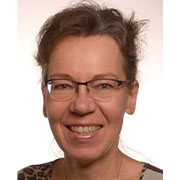
Dr. Inéz Frerichs is a Professor of Physiology at the Christian Albrechts University in Kiel, Germany. She is the head of the Electrical Impedance Tomography (EIT) research group at the Department of Anaesthesiology and Intensive Care Medicine at the University Medical Centre Schleswig-Holstein, Campus Kiel, Germany. In her scientific career, she has been involved with different aspects of lung-oriented research (e.g. gas transport in the lungs, high-frequency oscillation ventilation, respiratory mechanics, functional lung imaging, wearable lung monitoring). She has published 191 original articles (143 on EIT), 15 reviews and 21 book chapters.
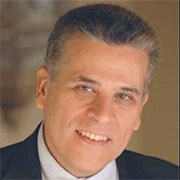
Sergio Guillen Graduate in Electronic Engineering (1976) and Doctor of Telecommunications (Polytechnic University in Valencia, UPV, 1988). He has worked for more than 10 years as Research Fellow of the National Scientific Council (CONICET) of Argentina and as Assistant Professor in the University of Tucumán (Argentina) in the field of Biomedical Engineering and Medical Instrumentation. Since the beginning of his professional career he as combined both, academic
and research activities and entrepreneurial undertakings. In 1998, he created the TSB Research Group, "Tecnologías para la Salud y el Bienestar" at the UPV. In
2000, he co-founded the ITACA Research Centre within the UPV where the TSB Research Group is currently ascribed. He has participated in more than 20 V, VI and VII Framework Programme R&D projects in the e-Health and e-Inclusion fields. Worth to mention are PIPS (IP VI FP project), My HEART (IP VI FP project) and SENSATION (IP VI FP Project). He has been technical coordinator of the PERSONA (IST- VI FP project) and Technical Manager of universAAL (IP VII project). He has been member of the management board in HEART CYCLE, OASIS, METABO and VAALID (all VII FP projects) as well as member of the advisory board in Heartways (Research for SMEs - VII FP Project) and MOSAIC (ICT – VII FP project). Currently he is Deputy Project Coordinator of H2020 LSP ACTIVAGE. He is Chief Innovation Officer of MYSPHERA.

Sara Casaccia is Assistant Professor of Mechanical and Thermal Measurements at the Department of Industrial Engineering and Mathematical Sciences of Università Politecnica delle Marche. She received her Master degree (cum laude) in Biomedical Engineering in 2011 at Università Politecnica delle Marche (Italy) and her Ph.D in Mechanical Engineering in 2015 in the same institution. She attended the department of Electrical and System Engineering of the Washington University in Saint Louis (Missouri-USA) for a period of 7 months during her Ph.D. Her research focuses on sensors and measurement techniques for supporting people in build and living environments (e.g. comfort, wellbeing), data processing to extract complex information (e.g. using AI), sensors for biomedical applications and non-destructing techniques.
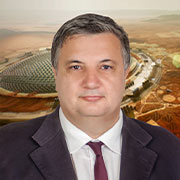
Antonio Del Mastro is an Electronic/Telecommunication Engineer with a long experience in the design, risk analysis techniques and certification of devices and systems in the Space and not-Space industry. He is is currently President of Mars Planet ( www.marsplanet.org), a private organization member of the International Astronautical Federation focused on the research on human exploration of Space. His main areas of research interest are related to virtual reality, space medicine, robotics, AI. Antonio is the president of the Italian Mars Society which he founded in 2004, as an Italian branch of the International Mars Society and Technical Director of Mars Planet Technologies, a Space company focused on the development of terrestrial applications of Space Research. Currently, he is a member of the working group Science and Technology for Digital Earth of the International Society of Digital Earth (ISDE).
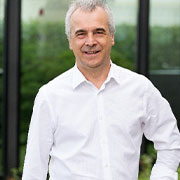
Filippo Servalli is Radici Group Corporate Innovation&Research Manager, in the past Marketing Director and Sustainability Manager at Radici Group, one of the most active Italian chemicals companies at an international level. Mr Servalli joined the Radici Group in 1992 as Marketing Manager at Radici Novacips S.P.A., and he previously worked at Acerbis Italia as an R&D specialist. President of the Federchimica “Responsible Care” commission. Member of the UNI and ISO Circular Economy working group.
